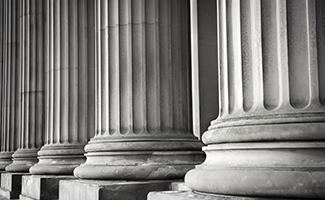
HARRISBURG (June 9, 2020) – The Supreme Court of Pennsylvania has made an addition to its Rules of Professional Conduct to prohibit harassment and discrimination in the practice of law, making reality a request by the Pennsylvania Bar Association.
New subsection (g) of Rule 8.4 makes it professional misconduct for a lawyer in the practice of law to “knowingly manifest bias or prejudice, or engage in harassment or discrimination.” Comment [4] to the rule adds that “the substantive law of antidiscrimination and anti-harassment statutes and case law guide application of paragraph (g) and clarify the scope of the prohibited conduct.”
“We thank the Supreme Court for approving this much-needed rule that is consistent with the PBA’s longstanding policies," said David E. Schwager, PBA president.
Schwager said that the PBA formalized its support for a rule amendment addressing harassment and discrimination in November 2016 when the PBA House of Delegates approved a recommendation given extensive consideration by the Legal Ethics and Professional Responsibility Committee and the Commission on Women in the Profession.
The rule as approved in its entirety by the Supreme Court of Pennsylvania is as follows:
Rule 8.4 Misconduct
It is professional misconduct for a lawyer to:
* * *
(e) state or imply an ability to influence improperly a government agency or
official or to achieve results by means that violate the Rules of Professional Conduct or
other law; [or]
(f) knowingly assist a judge or judicial officer in conduct that is a violation of
applicable rules of judicial conduct or other law[.] ; or
(g) in the practice of law, by words or conduct, knowingly manifest bias or
prejudice, or engage in harassment or discrimination, as those terms are defined
in applicable federal, state or local statutes or ordinances, including but not limited
to bias, prejudice, harassment or discrimination based upon race, sex, gender
identity or expression, religion, national origin, ethnicity, disability, age, sexual
orientation, marital status, or socioeconomic status. This paragraph does not limit
the ability of a lawyer to accept, decline or withdraw from a representation in
accordance with Rule 1.16. This paragraph does not preclude advice or advocacy
consistent with these Rules.
Comment:
* * *
[3] For the purposes of paragraph (g), conduct in the practice of law
includes participation in activities that are required for a lawyer to practice law,
including but not limited to continuing legal education seminars, bench bar
conferences and bar association activities where legal education credits are
offered.
[4] The substantive law of antidiscrimination and anti-harassment
statutes and case law guide application of paragraph (g) and clarify the scope of
the prohibited conduct.
[[3]] [5] A lawyer may refuse to comply with an obligation imposed by law
upon a good faith belief that no valid obligation exists. The provisions of Rule 1.2(d)
concerning a good faith challenge to the validity, scope, meaning or application of the law
apply to challenges of legal regulation of the practice of law.
[[4]] [6] Lawyers holding public office assume legal responsibilities going
beyond those of other citizens. A lawyer's abuse of public office can suggest an inability
to fulfill the professional role of lawyers. The same is true of abuse of positions of private
trust such as trustee, executor, administrator, guardian, agent and officer, director or
manager of a corporation or other organization.
###
Source: Pennsylvania Bar Association, 100 South Street, Harrisburg, PA 17101